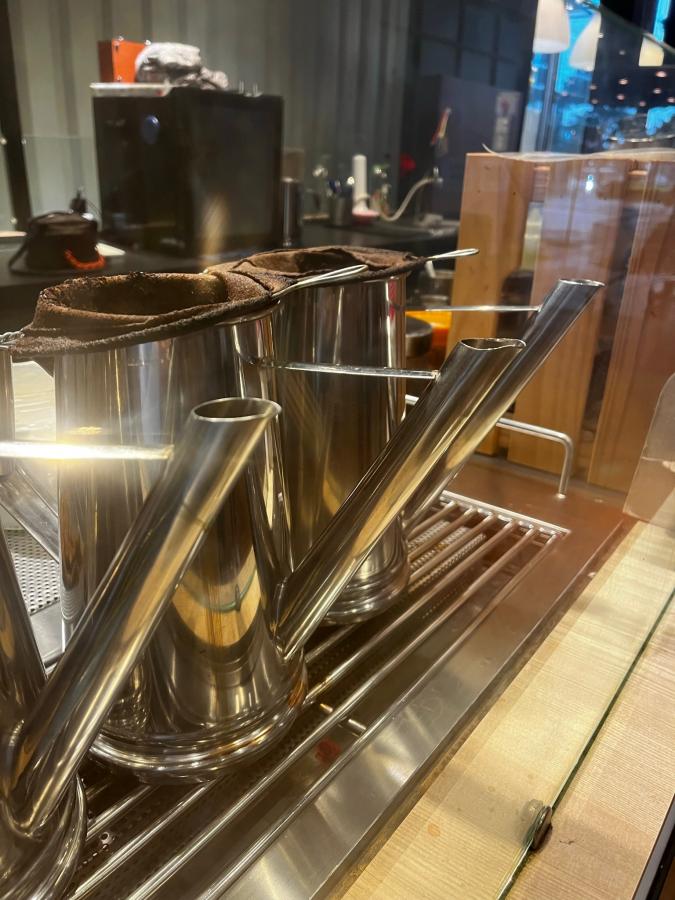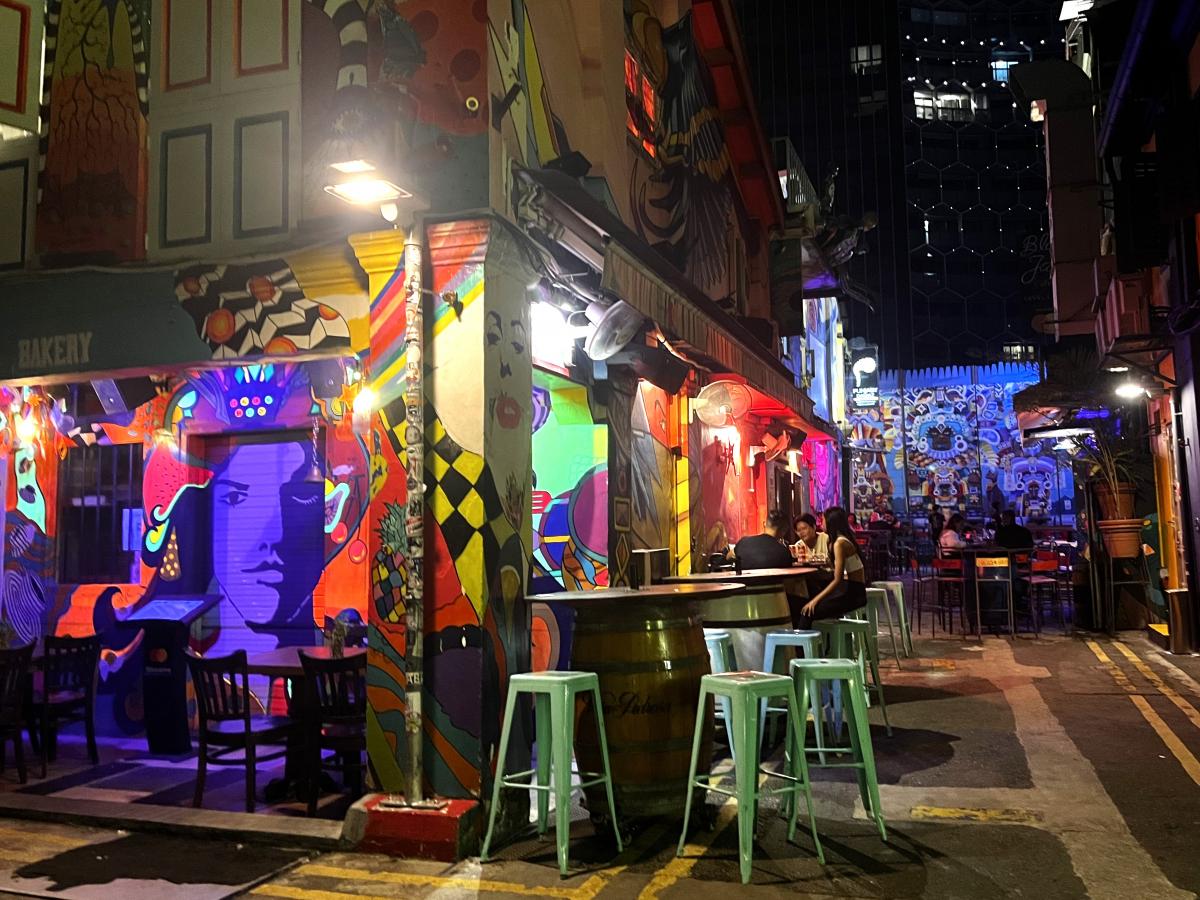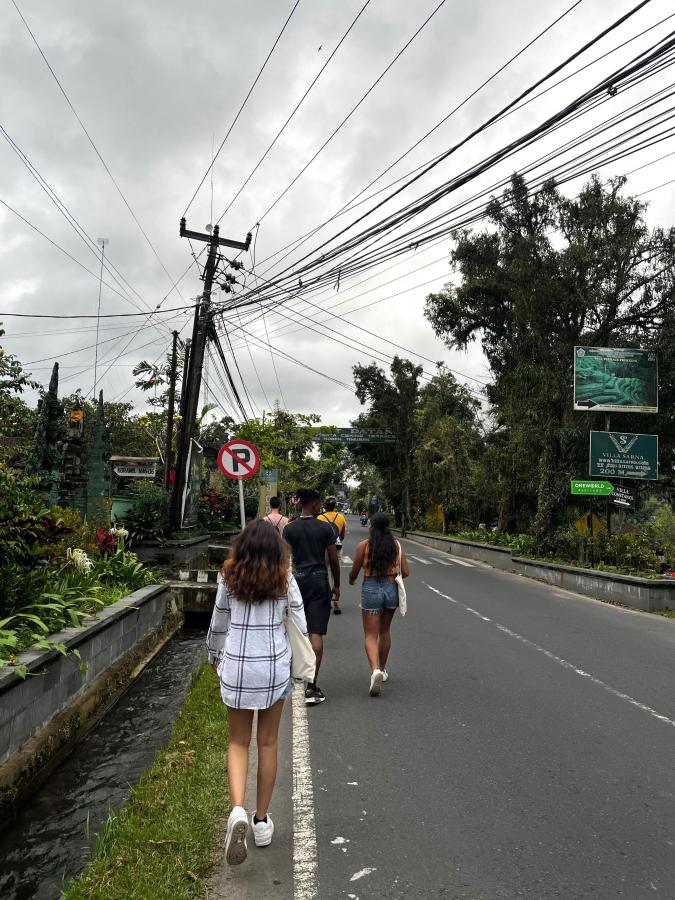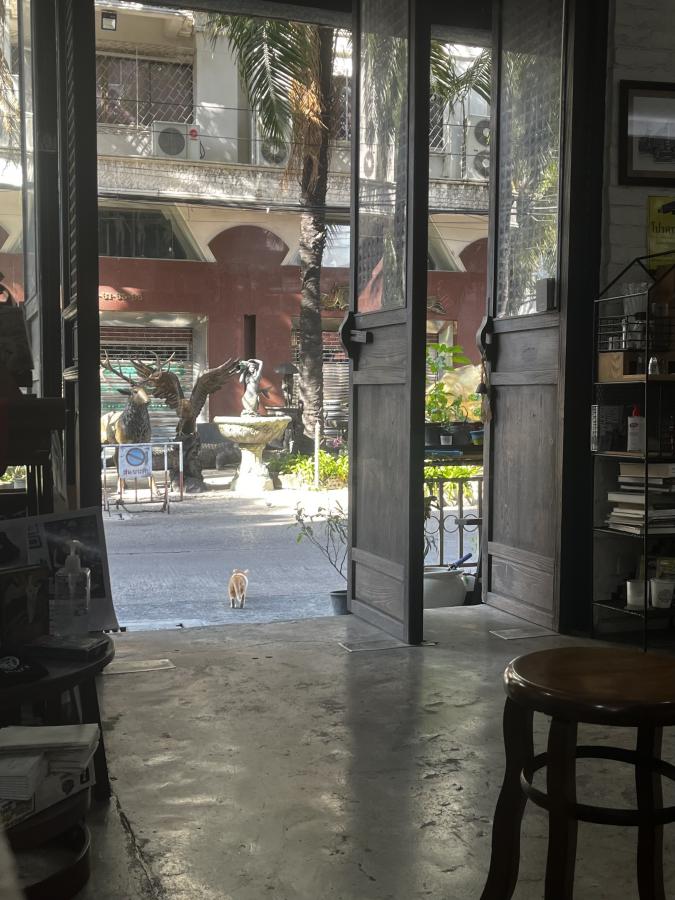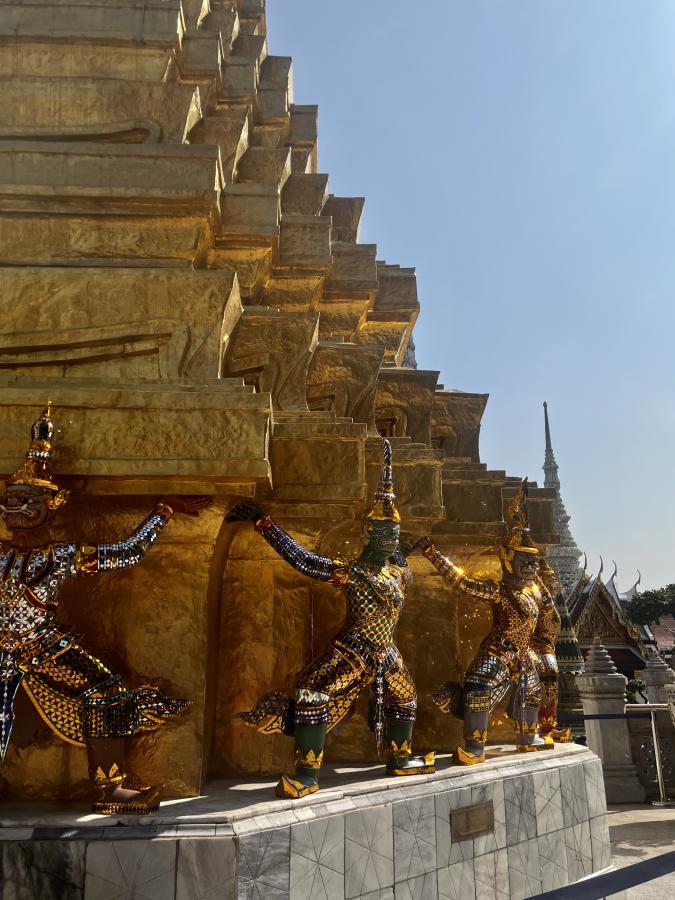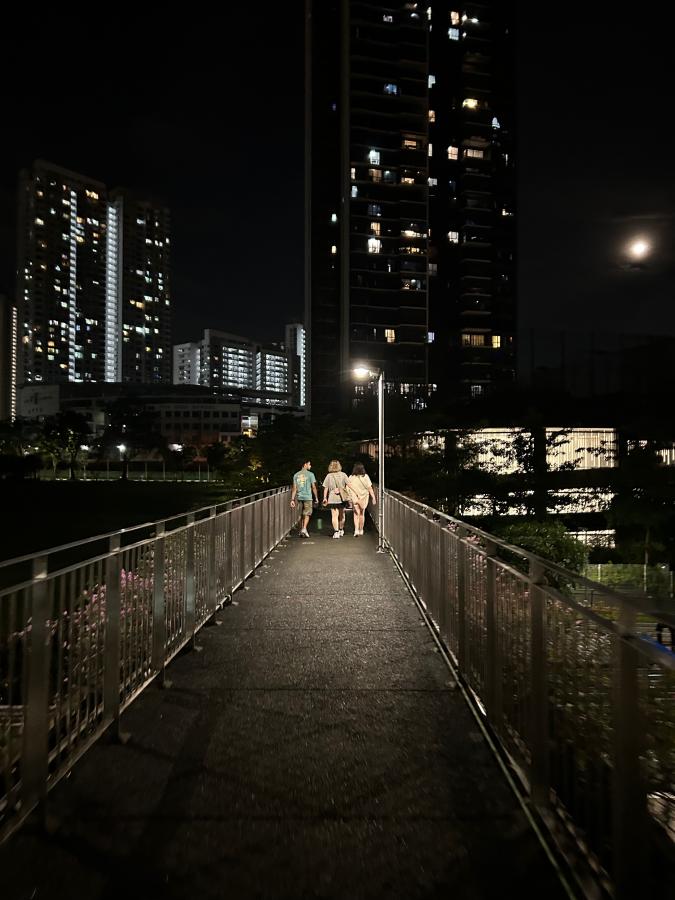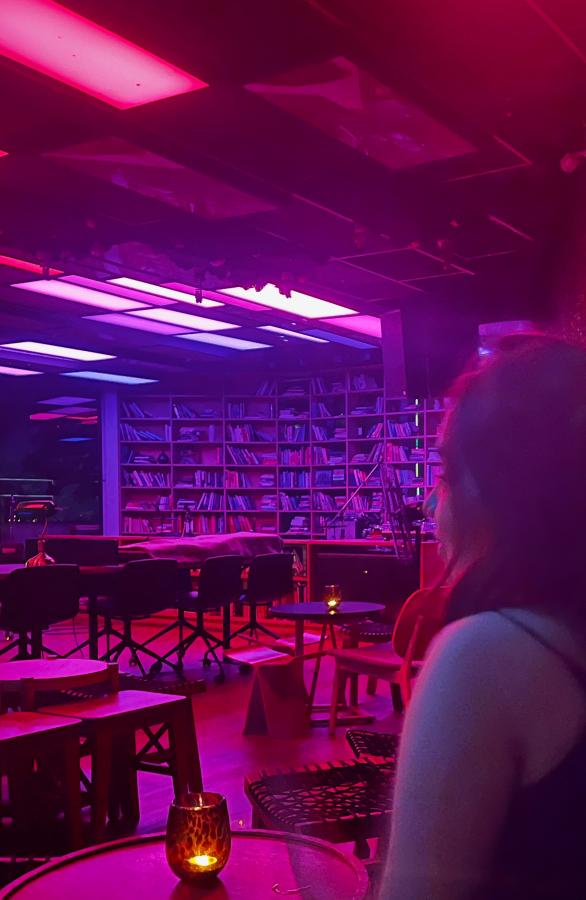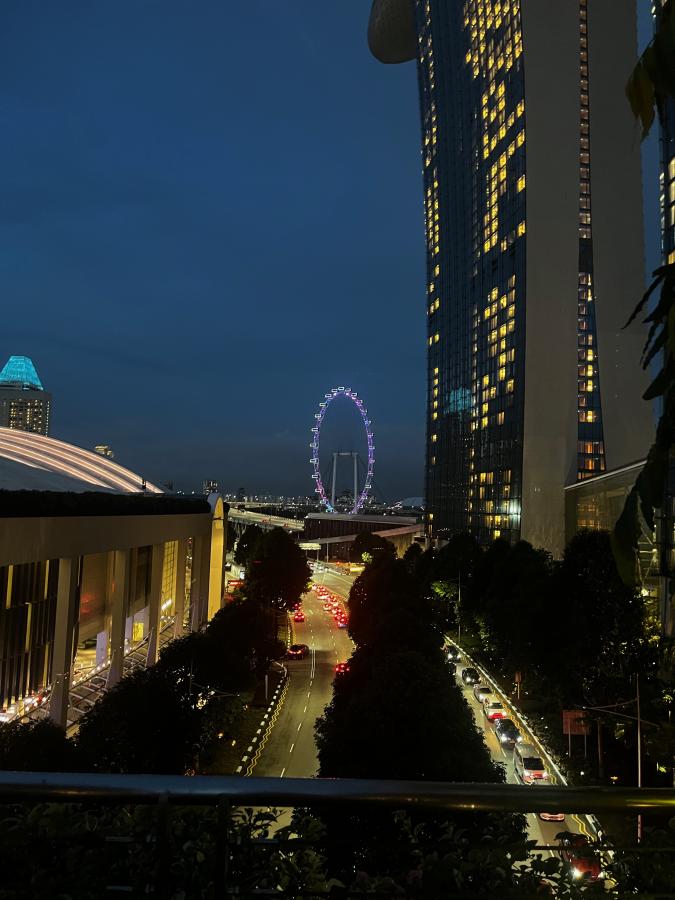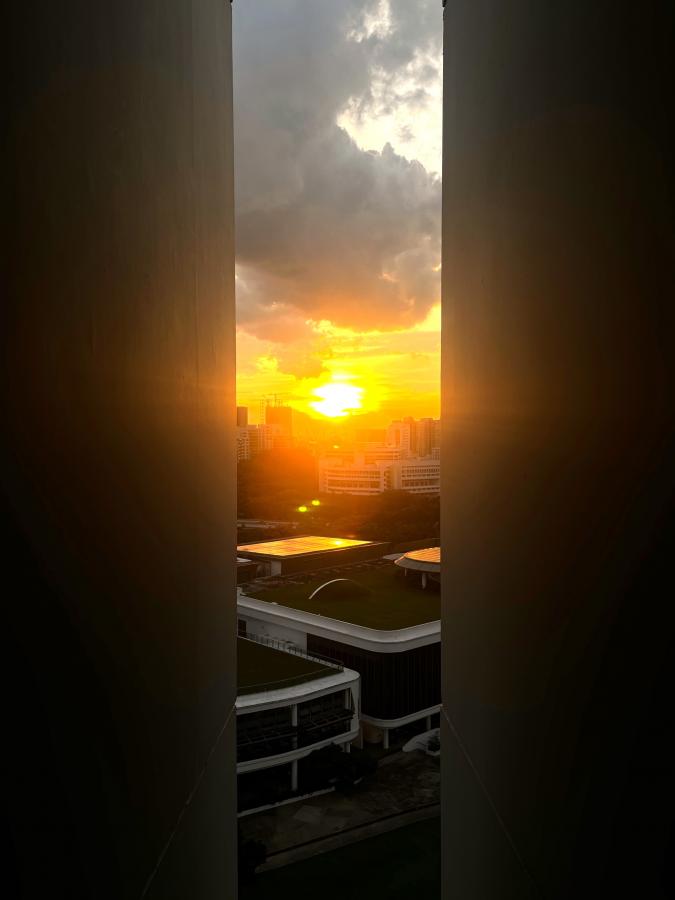Hello! My name is Izzie. I'm a UBC undergrad and I spent one term on exchange at the National University of Singapore (NUS) in fall 2022. It’s hard to believe it has been a whole year since I was living and studying on the other side of the world, enjoying the tropical Southeast Asian weather and making lasting memories. I wanted to share my experience highlights, thoughts and advice.
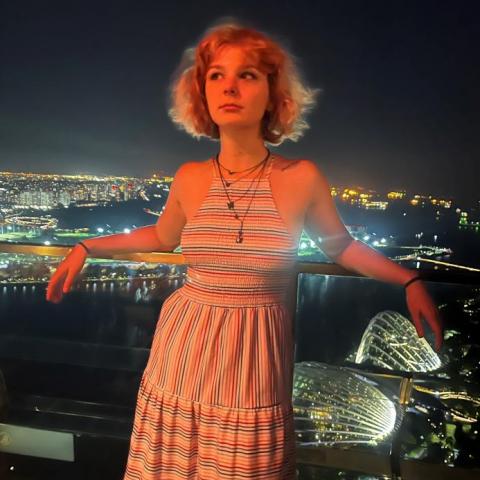
UBC student Izzie Bjonness-Jacobsen at the Cé La Vi rooftop bar at the Marina Bay Sands (photo: Thirza Bom)
Why NUS?
Everyone has varying factors to weigh when deciding where to go on exchange, and it’s completely understandable that key considerations for someone else may not fully line up with what is important to you. My main desires were to immerse myself in a very different location and cultural experience from the United States and Canada, take interesting courses at a reputable university and explore bustling cities with innovative urban planning. Singapore seemed like a natural fit, and I was thrilled when I heard Go Global had matched me with NUS.
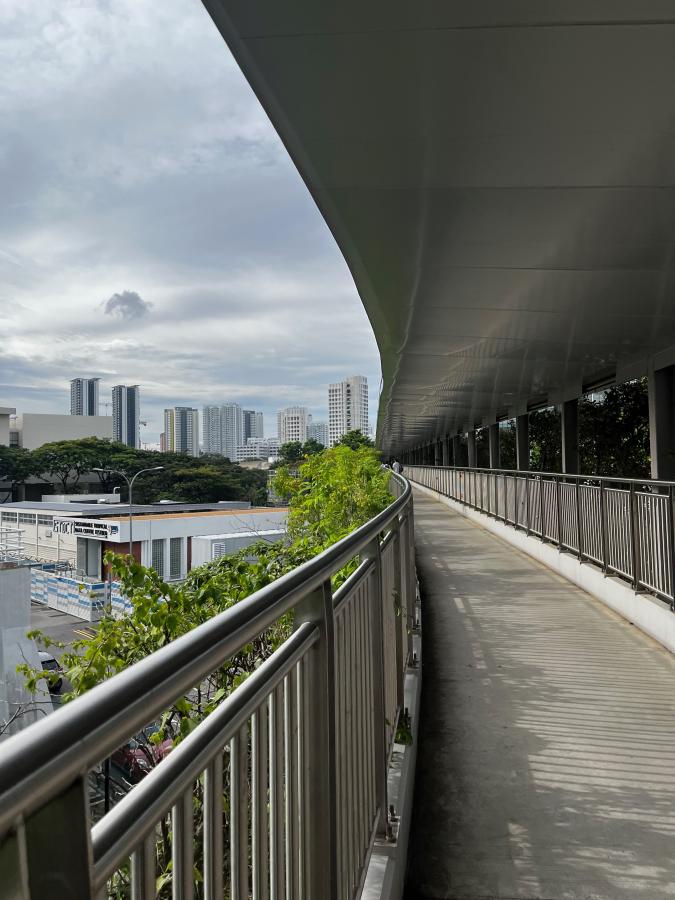
View from an elevated walkway at NUS (photo: Izzie Bjonness-Jacobsen)
Exchange highlights:
One thing that stands out to me is the sheer amount of stuff that can be packed into a few months. While on exchange, I sometimes felt like I was running out of time; but when I look back, I realize just how much I managed to accomplish and how many memories I made.
It was lovely to have the opportunity to visit famous Singapore tourist attractions such as Marina Bay, Haji Lane, Chinatown and Clarke Quay. Walking through Gardens by the Bay at night was breathtaking—the sculptures and lighting made the atmosphere feel ethereal. I also had a great time at the Singapore City Gallery, which is a three-story urban planning museum with interactive displays and an 11x10-m scale model of the central area of Singapore! Taking social science courses in a different cultural context was another highlight for me. I love learning about people, places and social systems; and being on exchange meant I could study this in my classes while encountering it personally each day.
To give ourselves a reason to leave campus more often, a friend and I signed up for a weekly aerial silks class downtown. Exploring before and after the class and visiting nearby restaurants ended up being a great way to get to know the area. I still miss the iconic Singaporean breakfast—Nanyang coffee or “kopi," two half-boiled eggs and kaya toast—and the wide variety of delicious, affordable food available across the city.
Travels:
I would strongly suggest that any student preparing to go on exchange budget in some extra time and money to travel if you have the ability. It’s not every day you find yourself living in another part of the world, and some of my favorite memories from my entire exchange came from time spent travelling across Southeast Asia. It’s also good to be prepared to be spontaneous. I didn’t know anyone when I first arrived in Singapore, but I ended up spending my reading break in Bali, Indonesia with a group of 14 new exchange friends I had met less than a month earlier. I met some of them for the first time in the airport as we were leaving! We hiked through canyons to stunning waterfalls, learned to drive mopeds, swam and took a group surfing lesson at Canggu Beach, and got to know each other better with each passing day. I also have quite a few fun memories from crossing the border into Malaysia to visit Kuala Lumpur (like seeing baby monkeys at the Batu Caves!) and Johor Bahru (who would go all the way to a different country just to visit a trampoline park?).
After the school term ended, I was able to spend about two weeks in Bangkok, Thailand with a friend who had studied with me at UBC and a week on the island of Phuket with another friend who had been an exchange student at my high school. It was incredibly cool to be able to collide these worlds and visit my friends in their home country. I was also grateful to be travelling with locals—while this isn’t always feasible, it is an enormous help, especially if you don’t speak the local language. Thailand was one of my absolute favourite places to visit because of the sheer size and vibrancy of the cities, the rich cultural history, the food and the unreal natural landscapes. To an extent, this is true for every place I visited. But I feel like I barely scratched the surface of all the things there are to do and definitely want to try to make it back there one day.
Challenges:
Even though there were so many wonderful things about my exchange experience, it’s important to acknowledge that it was also hard at times. Most of us want to project the best image we can to the world, and it’s tempting to only talk about the positives when asked how you are doing. Social media exacerbates this further. Anyone following me online during my exchange saw a highlight reel I’d describe as accurate, but incomplete.
Ultimately, as an exchange student, you are still attending university, and any stress you would normally expect to experience during an academic term will probably follow you to your destination—along with all the additional stress that comes with major life transitions. Balancing the demands of school with adjusting to a new environment, meeting new people, travelling on your own (especially if it’s for the first time) and trying to fit in as many activities as possible can be a bit overwhelming. I was optimistic at the outset and generally love to embrace unpredictability. But in retrospect, I wasn’t prepared to struggle as much as I did.
As someone with accessibility needs, I quickly realized I’d need to lean on available resources even more than I normally would to be able to manage all this effectively. Though I didn’t anticipate this being a priority, in reality, I needed these supports on exchange even more than I normally would at UBC. Making friends in the local community beyond popular tourist activities and school also turned out to be a central factor in helping me overcome my lowest moments. Feeling isolated isn’t fun, and I’ve come to realize that even if you are leaving after a short period of time, it is truly valuable and important to find people and places that make you feel like you belong.
If I were to go on exchange again, I would put a lot more energy into preparing logistics in advance and seeking advice from others who have been through similar situations. It would have been ideal to do more specific research on my partner university and destination. I got lucky that NUS happened to have a solid accessibility office, but I could have easily ended up somewhere else without access to resources I really do need. I would also make a conscious effort to be kinder to myself, actively connect with my support system back home and seek out even more chances to find community in Singapore. I sometimes tell people now that I wish I had printed out a list of resources and taped it to my door (or gotten it tattooed on the back of my hand) to remind myself I was not alone.
Growth and resilience:
Many people describe their international experience as a period of time they wish they could go back to and never would have wanted to leave, and I’m not sure I fully share that sentiment. As much fun as I had, I was exhausted by the end of my trip and felt very ready to come back to Vancouver.
Going through an adventure like this is a personal process, and not everyone is going to feel happy and energetic 100% of the time—in fact, I would be surprised to hear of anyone who went through zero ups and downs during a very eventful five months of their life! However, it’s also true that even difficult times can be valuable moments of growth. Beautiful friendships can be forged by overcoming obstacles together, and struggling to do something you have never done before can equip you with new skills and wisdom for the next time around. To me, university feels like the perfect stage of life to undertake a comfort-zone-stretching, coming-of-age journey as you gradually find your place in the world.
I deeply value the time I spent in Southeast Asia, and the topics I learned about through classes and personal experience broadened my academic and professional lives. I have even been working at the Go Global office myself since I returned, first as a co-op student and now as a part-time staff member.
Conclusion:
Overall, I highly, highly recommend participating in an international learning program if it’s something that makes sense for you. (It isn’t for everyone, and that’s completely OK.) Even if your experience isn’t perfect, it will almost definitely be transformative. I sometimes joke that going on exchange and working at Go Global has made me into a walking advertisement: now that I know about all of the different programs on offer, I want everyone to have the opportunity to participate. For example, I wasn’t even aware of Global Seminars initially, but now I know they’re a great option for students who can’t (or don’t want to) take an entire term away from UBC or for anyone interested in a more focused, structured international learning experience.
If you’re thinking about applying, this is my personal invitation to you to keep exploring this website or drop by the Go Global office in the UBC Life Building to talk to someone about your options. I wish you all the best of luck in your travels—so many possibilities await!
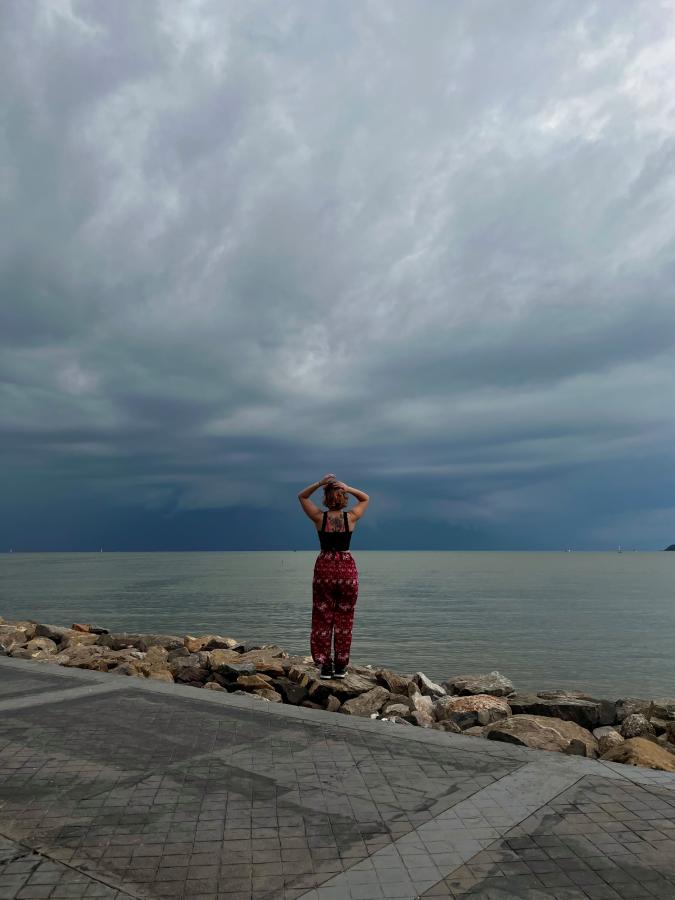
Izzie Bjonness-Jacobsen in Phuket, Thailand (photo: Sound Satsri)
About the author
Izzie Bjonness-Jacobsen, 22, is a 5th-year UBC undergraduate student in the Interdisciplinary Studies program in the Faculty of Arts. She is originally from Normal, Illinois, USA.
Read more about UBC Go Global programs.

